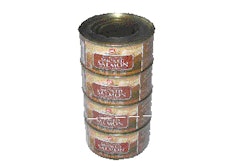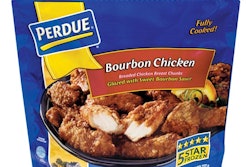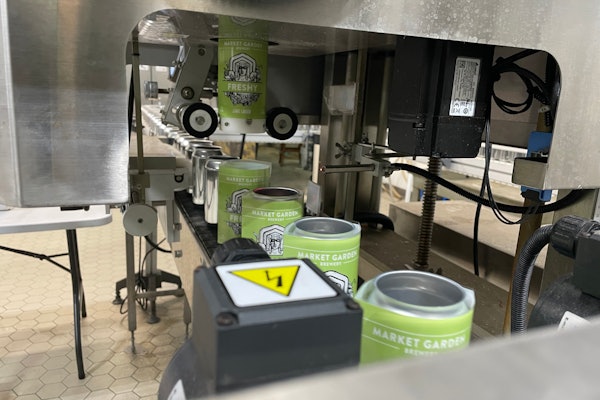This stands in stark contrast to other regions such as Eastern Europe,
Latin America and Africa and the Middle East, whose combined value
share totalled less than 6% for the same period. Many consumers in
these regions still prefer fresh food. Furthermore, low per capita
income levels mean that many consumers are unable to afford the higher
price of ready meals unlike their counterparts in Western Europe.
Though value sales are showing signs of slowing in 2007, in part due to increased retail promotions and price discounting, retail volumes have remained dynamic, increasing 3% from 2006. This has been largely due to continued growth in chilled ready meals, underpinned by a seemingly infinite supply of new product offerings from both branded manufacturers and retailer own brands. Furthermore, ready meals as a whole continue to benefit from ongoing consumer lifestyle trends in Western Europe. Consumers increasingly lead more hectic lifestyles, characterised by greater pursuit of business and leisure activities. In addition, crucial socio-cultural factors, such as an increase in the number of women joining the workforce and in the number of single-person households, are also driving sales growth.
Healthier offerings gain greater prominence
While convenience is still the primary reason for consumers to choose ready meals, a gradual shift in demand towards higher-quality food also persists. In particular, there has been a growing demand for healthier offerings including organically produced meals or reduced-fat products. According to Euromonitor International's research, retail value sales of organic ready meals in Western Europe grew by 17% over 2005-2006, followed by BFY (Better for you) reduced-fat ready meals at almost 11% over the same period.
According to Euromonitor International's observations, there are two distinct types of health trends that should gain greater prominence in the future. One is a drive to reduce the unhealthy aspect of products by reducing the amount of harmful ingredients. The other is adding ingredients to make them appear healthy, such as fortification with Omega 3. The former approach is fundamental to the future of the sector as the market tries to fight off the negative publicity associating numerous packaged food offerings with an unhealthy lifestyle. Ready meals unfortunately are deemed to be among the key culprits. The latter approach is more faddish, changing with each new healthy ingredient that comes along claiming to be the magic element of a healthy diet.
Fastest growing versus most sluggish markets in the future
The fastest growing markets in Western Europe by retail value over 2006-2007 were undoubtedly in Scandinavia thanks primarily to continued growth in Norway and Finland, followed by Mediterranean countries Spain and Italy. According to Euromonitor International's findings, Norway was the fastest growing market in Western Europe by retail value. It is expected to achieve a similar rate over the forecast period, with sales growing by 40% over 2007-2012 mainly as a result of the ever-growing demand for chilled ready meals and frozen pizza.
On the other hand, the UK has registered rather sluggish growth of 1.4% in retail value terms over 2006-2007. This has been largely due to a marked slowdown in a number of sectors including frozen ready meals and canned/preserved ready meals. Despite advertising campaigns to promote frozen food, frozen ready meals have continued to lose out to their chilled counterparts. The former have suffered from constant price promotions that have undermined any value growth potential from innovative launches. As a result, consumers still perceive frozen ready meals to be poorer in quality and less healthy than chilled offerings.
Meanwhile, chilled ready meals have benefited from a trend towards premium products which has enabled strong value growth and further emphasises the differing fortunes of both categories. Therefore, it is vital that frozen food manufacturers recognise the importance of being perceived to offer a healthy range of products if they want to halt further sales declines in the frozen aisle. Euromonitor International expects to see a raft of new frozen products in the near future that are healthier and offer reduced levels of salt, sugar or fat.
Though value sales are showing signs of slowing in 2007, in part due to increased retail promotions and price discounting, retail volumes have remained dynamic, increasing 3% from 2006. This has been largely due to continued growth in chilled ready meals, underpinned by a seemingly infinite supply of new product offerings from both branded manufacturers and retailer own brands. Furthermore, ready meals as a whole continue to benefit from ongoing consumer lifestyle trends in Western Europe. Consumers increasingly lead more hectic lifestyles, characterised by greater pursuit of business and leisure activities. In addition, crucial socio-cultural factors, such as an increase in the number of women joining the workforce and in the number of single-person households, are also driving sales growth.
Healthier offerings gain greater prominence
While convenience is still the primary reason for consumers to choose ready meals, a gradual shift in demand towards higher-quality food also persists. In particular, there has been a growing demand for healthier offerings including organically produced meals or reduced-fat products. According to Euromonitor International's research, retail value sales of organic ready meals in Western Europe grew by 17% over 2005-2006, followed by BFY (Better for you) reduced-fat ready meals at almost 11% over the same period.
According to Euromonitor International's observations, there are two distinct types of health trends that should gain greater prominence in the future. One is a drive to reduce the unhealthy aspect of products by reducing the amount of harmful ingredients. The other is adding ingredients to make them appear healthy, such as fortification with Omega 3. The former approach is fundamental to the future of the sector as the market tries to fight off the negative publicity associating numerous packaged food offerings with an unhealthy lifestyle. Ready meals unfortunately are deemed to be among the key culprits. The latter approach is more faddish, changing with each new healthy ingredient that comes along claiming to be the magic element of a healthy diet.
Fastest growing versus most sluggish markets in the future
The fastest growing markets in Western Europe by retail value over 2006-2007 were undoubtedly in Scandinavia thanks primarily to continued growth in Norway and Finland, followed by Mediterranean countries Spain and Italy. According to Euromonitor International's findings, Norway was the fastest growing market in Western Europe by retail value. It is expected to achieve a similar rate over the forecast period, with sales growing by 40% over 2007-2012 mainly as a result of the ever-growing demand for chilled ready meals and frozen pizza.
On the other hand, the UK has registered rather sluggish growth of 1.4% in retail value terms over 2006-2007. This has been largely due to a marked slowdown in a number of sectors including frozen ready meals and canned/preserved ready meals. Despite advertising campaigns to promote frozen food, frozen ready meals have continued to lose out to their chilled counterparts. The former have suffered from constant price promotions that have undermined any value growth potential from innovative launches. As a result, consumers still perceive frozen ready meals to be poorer in quality and less healthy than chilled offerings.
Meanwhile, chilled ready meals have benefited from a trend towards premium products which has enabled strong value growth and further emphasises the differing fortunes of both categories. Therefore, it is vital that frozen food manufacturers recognise the importance of being perceived to offer a healthy range of products if they want to halt further sales declines in the frozen aisle. Euromonitor International expects to see a raft of new frozen products in the near future that are healthier and offer reduced levels of salt, sugar or fat.
Companies in this article


























